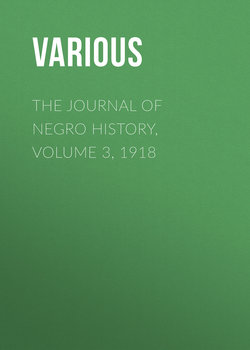Читать книгу The Journal of Negro History, Volume 3, 1918 - Various - Страница 6
The Journal of Negro History
Vol. III—January, 1918—No. 1
THOMAS JEFFERSON'S THOUGHTS ON THE NEGRO
I
ОглавлениеJefferson, like a number of liberal-minded men of his time, execrated the slave trade and as the following extracts will show held it as a grievance against the British.
During the regal government we had, at one time, obtained a law which imposed such a duty on the importation of slaves as amounted nearly in a prohibition, when one inconsiderate assembly, placed under a peculiarity of circumstance, repealed the law. This repeal met a joyful sanction from the then reigning sovereign, and no devices, no expedients which could ever be attempted by subsequent assemblies (and they seldom met without attempting them) could succeed in getting the royal assent to a renewal of the duty. In the very first session held under the republican government, the assembly passed a law for the perpetual prohibition of the importation of slaves. This will, in some measure, stop the increase of this great political and moral evil, while the minds of our citizens may be ripening for a complete emancipation of human nature.48
The abolition of domestic slavery is the great object of desire in those Colonies, where it was, unhappily, introduced in their infant state. But previous to the enfranchisement of the slaves we have, it is necessary to exclude all further importations from Africa. Yet our repeated attempts to effect this by prohibitions, and by imposing duties which might amount to a prohibition, have been hitherto defeated by his Majesty's negative: Thus preferring the immediate advantages of a few British corsairs to the lasting interests of the American States, and to the rights of human nature, deeply wounded by this infamous practice.49
With the same thought as that of the views expressed above Jefferson incorporated into the original Declaration of Independence an indictment of George III as promoting the ruin of the colonies in encouraging the slave trade. He said:
He (George III) has waged cruel war against human nature itself, violating its most sacred rights of life and liberty in the persons of a distant people who never offended him, captivating and carrying them into slavery in another hemisphere, or to incur miserable death in their transportation thither. This piratical warfare, the opprobrium of Infidel powers, is the warfare of the Christian King of Great Britain. Determined to keep open a market where Men should be bought and sold, he has prostituted his negative for suppressing every legislative attempt to prohibit or to restrain this execrable commerce. And that this assemblage of horrors might want no fact of distinguished dye, he is now exciting those very people to rise in arms among us, and to purchase that liberty of which he has deprived them, by murdering the people upon whom he has obtruded them; thus paying off former crimes committed against the Liberties of one people, with crimes which he urges them to commit against the lives of another.50
48
Ford edition of Jefferson's Writings, III, p. 102.
49
"Rights of British America," Ford edition of Jefferson's Writings, I, p. 440.
50
"This clause," says Jefferson, in his Autobiography (I, p. 19), "was struck out in complaisance to South Carolina and Georgia, who had never attempted to restrain the importation of slaves, and who, on the contrary, still wished to continue it. Our northern brethren, also, I believe, felt a little tender under those censures; for though their people had very few slaves themselves, yet they had been pretty considerable carriers of them to others."
